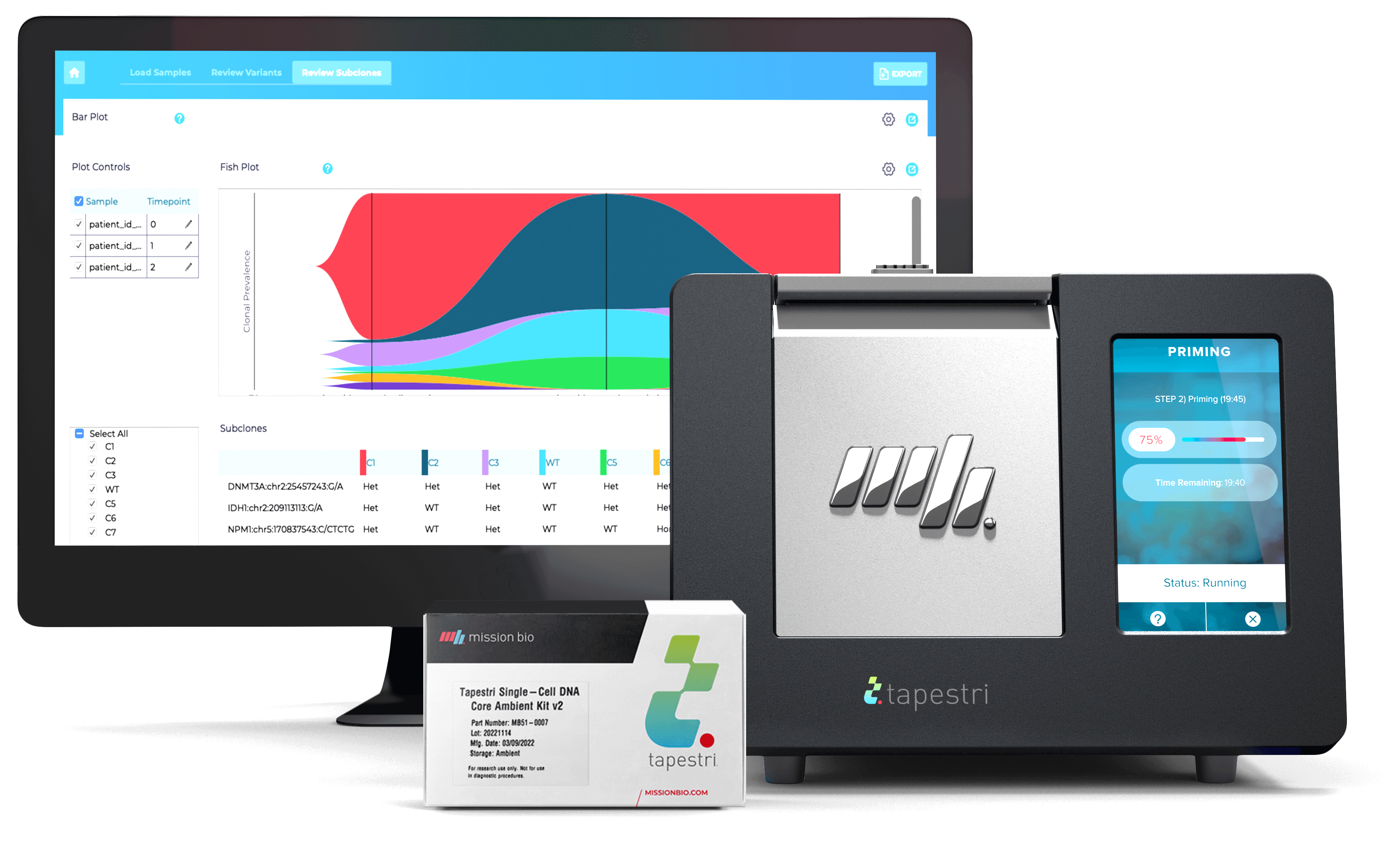

Understanding why some patients respond to therapies while others do not is critical to accelerating clinical trials and developing better treatments. Single-cell DNA and multi-omics analyses can untangle therapy resistance mechanisms that are impossible to obtain through traditional methodologies. The simultaneous detection of mutation profile and immunophenotype will help you discover new druggable targets, explore mechanisms of action, monitor patients, identify drug resistance as it develops, and stratify patients for clinical trials with greater efficiency.
TALK TO A SCIENTISTWhile great strides have been made in targeted therapies, improved biomarker discovery is needed to realize the full potential of precision medicine. Single-cell analysis of genotype and phenotype from the same cell can provide sensitivity and resolution for biomarker discovery unattainable by current bulk methods. Single-cell resolution can reveal treatment resistance mechanisms to better stratify patients in clinical trials. While on treatment, residual levels of disease can be detected with the high sensitivity of single-cell analysis. Characterizing clonal heterogeneity and tracking clonal evolution during treatment can then guide adaptive and rational combination therapies for better patient stratification and better clinical trial outcomes.
It is time to get to the ground truth of cancer



Marcia Eisenberg, CSO of LabCorp, GenomeWeb

Custom Panels
Custom designs with Tapestri Designer
To support you and your drug development, we provide full service as a strategic partner for you from single-cell assay design, sample processing, through to data analysis and visualization. Whether we offer services internally or in partnership with qualified CROs, we are dedicated to the accelerated success of your drug development programs.

